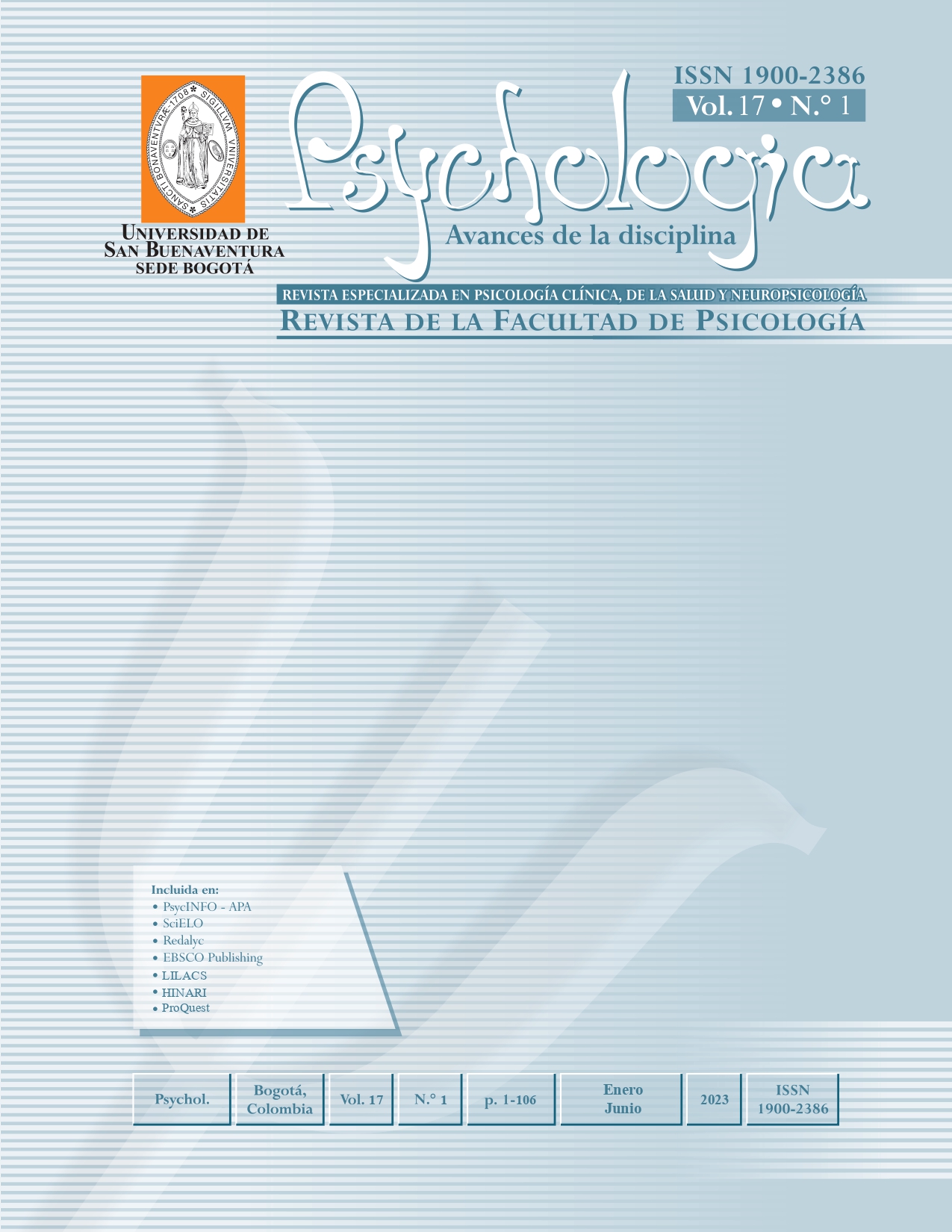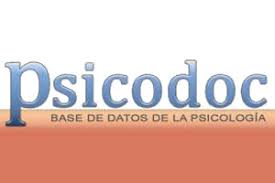This journal provides open, immediate access to its contents, based on the principle that offering the public free access to research helps to promote a higher global exchange of knowledge.
As such, all journal articles are published under a Creative Commons Attribution-NonCommercial-ShareAlike 4.0 International License (CC BY-NC-SA), by which commercial use of the original work or its possible derived works is not allowed, and the distribution thereof must be done with the same license elements regulating the original work.
http://creativecommons.org/licenses/by-nc-sa/4.0/
Abstract
The present research aimed to describe the differences and influence of Colombia geographic regions on Specific Adaptive Skills and Domains of Adaptive Behavior in Colombian children between 0-15 years of age without neurodevelopmental alterations and without etiology of cerebral disease. 2081 Colombian children´s parents and teachers participated, divided into 4 regions: Andean, Caribbean, Orinoquía and Pacific. The ABAS-II questionnaire was applied the chindren´s parent version to parents of children from 0 to 1,11 years and the school parents`and school teachers` versions to parents and teachers of children from 2 to 15 years of age. The results indicated that there are statistically significance differences between the children of the different regions, the highest results being those of the Pacific region and the lowest those of the Orinoquía region. It is considered with the results that it is important to take into account the cultural, social, environmental and historical aspects of each region of the country for the evaluation of their adaptive behavior; these differences do not mark or indicate greater susceptibility to pathology, but rather cultural variations within of the terms considered as the expected.
References
Barcons, N., Abrines, N., Brun, C., Sartini, C., Fumadó, V., Marre, D. (2012). Attachment and adaptive skills in children of international adoption. Child & Family Social Work, 19(1). DOI: https://doi.org/10.1111/j.1365-2206.2012.00883.x.
Bocarejo, D. (2011). Dos paradojas del multiculturalismo colombiano: la espacialización de la diferencia indígena y su aislamiento político. Revista Colombiana de Antropología, 47(2), 97-121. ISSN: 0486-6525.
Brown, T., O’Keefe, S. & Stagnitti, K. (2011). Activity preferences and participation of school-age children living in urben and rural environments. Occupational Therapy in Health Care, 25(4), 225-239. DOI: 10.3109/07380577.2011.589889.
Castro, C. (2009). Estudios sobre educación intercultural en Colombia: tendencias y perspectivas Memorias. Revista Digital de Historia y Arqueología desde el Caribe, (10), 358-375. E-ISSN: 1794-8886.
Cole, M. & Scribner, S. (1974). Culture and thought: A psychological introduction. New York: Wiley. ISBN: 978-0471164784.
Cole, M. (1996). Cultural psychology: A once and future discipline. Cambridge, MA: Harvard University Press. ISBN: 978-0674179561.
Coster, W., Bedell, G., Law, M., Alunkal, M., Teplicky, R., Liljenquist, K., Gleason, K., & Kao, Y. (2011). Psychometric evaluation of the participation and environment measure for children and youth. Developmental Medicine & Child Neurology, 53(11), 976-977. DOI: https://doi.org/10.1111/j.1469-8749.2011.04094.x.
Del Río, P., & Álvarez, A. (2017). Vygotsky and beyond: Horizons for the future of psychology. Estudios de Psicología, 38, 63-114.
Dupuis, A., Moon, M. J., Brian, J., Georgiades, S., Levy, T., Anagnostou, E., Nicolson, R., Schachar, R., & Crosbie, J. (2021). Concurrent Validity of the ABAS-II Questionnaire with the Vineland II Interview for Adaptive Behavior in a Pediatric ASD Sample: High Correspondence Despite Systematically Lower Scores. The Journal of Autism and Developmental Disorders, 51, 1417-1427. https://doi.org/10.1007/s10803-020-04597-y
Duran, A. (2012). Herencias moderno-coloniales en actuales discursos sobre la Orinoquia Colombiana. EURE, 38(115), 195-217. ISSN: 0205-7161.
Foucault, M. (1971). El orden del discurso. Editorial Austral. ISBN: 978-84-9066-594-7
Galvis-Aponte & Meisel-Roca (2010). Persistencia de las desigualdades regionales en Colombia: un análisis espacial. Documentos de Trabajo sobre Economía Regional y Urbana, (120). https://repositorio.banrep.gov.co/handle/20.500.12134/3014.
González, R. I. S., Remón, R. C. I., & González, J. I. R. (2021). Influencia del contexto sociocultural en el desarrollo del pensamiento histórico. Opuntia Brava, 232-245.
González-Moreno, C. X., Solovieva, Y., & Quintanar-Rojas, L. (2012). Neuropsicología y psicología histórico-cultural: Aportes en el ámbito educativo. Revista de la Facultad de Medicina, 60(3), 221-231.
Granada E., H. (2010). La cultura como estrategia de adaptación en la interacción sujeto social – ambiente. Investigación & Amp.; Desarrollo, 11(1), 134-161.
Greenfield, P. (2016). Social change, cultural evolution, and human development. Current Opinion in Psychology, 8, 84-92. DOI: 10.1016/j.copsyc.2015.10.012
Gutiérrez, M., Correa, D., Zárate, M., Noriega, M., & Acosta M. (2020). Informe Observatorio Regional ODS: Región Pacífica. Universidad de los Andes: Bogotá D.C. http://hdl.handle.net/1992/47941.
Gutiérrez-Zúñiga, R., Paz, E., Suazo, D., & Rodríguez, M. (2018). Instrumentos de evaluación de la conducta adaptativa en personas con discapacidad intelectual. UCMaule, 55, 9-2. http://revistaucmaule.ucm.cl/article/view/145
Harries, J., Guscia, R., Kirby, N., Nettelbeck, T., Taplin, J., & Maclean, W. (2005). Support needs and adaptive behaviors. American Journal on Intellectual and Developmental Disabilities. 110(5), 393‐404. DOI: https://doi.org/10.1352/0895-8017(2005)110[393:SNAAB]2.0.C O;2.
Harrison, P., & Oakland T. (2003). Adaptive Behavior Assessment System – Second Edition. San Antonio, TX: Harcourt Assessment. ISBN: 978-0158-0045-18.
Harrison, P. & Raineri, G. (2007). Adaptive behavior assessment for preschool children. 4th Ed. E-ISBN: 978-1315-0893-62.
JASP Team (2023). JASP (Version 0.17.1) [Computer software]
Keller, H. (2017). Culture and development: A systematic relationship. Perspectives on Psychological Science, 12(5), 833-840. DOI: 10.1177/1745691617704097
Killeen, H., Shiel, A., Law, M., O’Donovan, D., Segurado, R., & Anaby, D. (2018). Relationships between adaptative behaviours, personal factors, and participation of young children. Physical & Occupational Therapy in Pediatrics, 38(4), 343-354. DOI: https://doi.org/ 10.1080/01942638.2017.1406428.
Korsavi, S. & Montazami, A. (2020). Children’s thermal comfort and adaptive behaviours; UK primary schools during non-heating and heating seasons. Energy & Buildings, 214, 1-19. DOI: https://doi.org/10.1016/j.enbuild.2020.109857.
Leaf, J. (2017). Handbook of Social Skills and Autism Spectrum Disorder. Assessment, Curricula, and intervention. Switzerland: Springer International Publishing. ISBN 078-3-319-62995-7.
Lopera, J. (2015). Sabiduría práctica y salud psíquica. Medellín: San Pablo. ISBN: 978-958-768-344-8.
Montealegre, R. (2020) Psicología Cultural: Arte, Educación y Trabajo. Asociación Colombiana de Facultades de Psicología (ASCOFAPSI). ISBN: 978-958-52808-6-1.
Montero, D. & Fernández-Pinto, I. (2013). ABAS-II: Sistema Para la Evaluación de la Conducta Adaptativa: Manual. TEA: España. ISBN 978-84-15262-76-3.
Orr, H. & Coyne, J. (1992). The genetics of adaptation: a reassessment. The American Naturalist, 140(5), 725-742. DOI: 10.1086/285437.
Packer, M. (2019). Psicología Cultural: introducción y visión general. Avances en Psicología Latinoamericana, 37(3), 232-246. DOI: http://dx.doi.org/10.12804/revistas.urosario.edu. co/apl/a.7882.
Ramón, M. D. P. M., Pérez-López, J., Velasco, L. P. P., & Pérez-Lag, M. (2012). Conductas adaptativas de los niños y percepción materna de niño difícil. International Journal of Developmental and Educational Psychology, 1(1), 45-52.
Rosas, R. & Tenorio, M. (2015). ¿Cómo superar los problemas de evaluación de niños con limitaciones cognitivas en Chile? Serie Temas de la Agenda pública, 10(80) 1-11. ISSN: 0718-9745.
Sánchez, S. (2005) Adaptación de las especies a través de cambios genéticos influenciados por el Medio Ambiente. Revista Electrónica de Veterinaria, 6(2), 1-9. E-ISSN: 1695-7504.
Schalock, R., Borthwick-Duffy, S., Bradley, V., Buntix, W., Coulter, D., Craig, E., Gomez, S., Lachapelle, Y., Luckasson, R., Reeve, A., Shogren, K., Snell, M., Spreat, S., Tassé, M., Thompson, J., Verdugo, M., Wehmeyer, M., & Yeager, M. (2010). Intellectual Disability: Definition, Classification and Systems of Supports. 11th ed. Washington DC: American Association on Intellectual and Developmental Disabilities. ISBN: 978-1-9353-0404-3.
Schalock, R.L., Luckasson, R., & Tassé, M. J. (2021). An Overview of Intellectual Disability: Definition, Diagnosis, Classification, and Systems of Supports (12th Ed.). Am J Intellect Dev Disabil, 126(6), 439-442. DOI: 10.1352/1944-7558-126.6.439. PMID: 34700345.
Schmandt, D. (2010). How writing came about. Texas: University of Texas Press. ISBN: 978-0-5852-3438-0.
Tassé, M., Luckasson, R., & Schalock, R. (2016). The relation between intellectual functioning and adaptative behavior in the diagnosis of intellectual disability. Intellectual and Developmental Disabilities, 54(6), 318-390. DOI: https://doi.org/10.1352/1934-9556-54.6.381.
Tassé, M., Schalock, R., Balboni, G., Brsani, H., Borthwick-Duffy, S., Spreat, S., Thissen, D., Widaman, K. & Zhang, D. (2012). The construct of adaptative Behavior: Its conceptualization, measurement and use in the field of intellectual disability. American Journal on Intellectual and Developmental Disabilities, 117(4), 291-303. DOI: https://doi.org/10.1352/1944-7558-117.4.291.
Tassé, M., Schalock, R., Thissen, D., Balboni, G., Bersani, H., Borthwick-Duffy, S., Spreat, S., Widaman, K., Zhang, D., & Navas, P. (2016). Developmental and standardization of the diagnostic adaptative behavior Scale: Application of Item Response Theory to the assessment of adaptative behavior. American Journal on Intellectual and Developmental Disabilities, 121(2), 79-94. DOI: https://doi.org/10.1352/1944-7558-121.2.79.
Valencia, I. (2011) Impactos del reconocimiento multicultural en el archipiélago de San Andrés, Providencia y Santa Catalina: entre la etnización y el conflicto social. Revista Colombiana de Antropología, 47(2), 69-95. ISSN: 0486-6525.
Vygotsky, L. (1978). Mind in society: The developmental of higher psychological processes. Cambridge: Harvard University Press.
Wabgou, M., Vargas, D., & Carabalí, J. (2012). Las migraciones internacionales en Colombia. Investigación & Desarrollo, 20(1), 142-167. ISSN: 0121-3261.





















